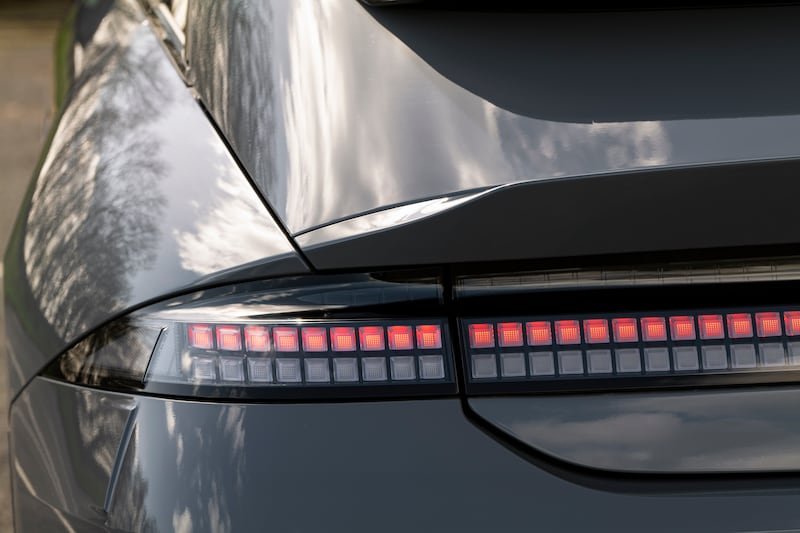Hyundai has been winning plaudits for its electric cars but it can’t be accused of going about it in a conventional way, writes William Scholes.
While its little battery powered Kona earned a devoted following, it was the Ioniq 5 that really made punters sit up and take notice. When it might have been expected to play it safe and build a crowd-pleasing SUV or a family hatchback in the mould of the dull Volkswagen ID3, Hyundai reckoned that what people really wanted was a ginormous hatch with origami-creased bodywork, the aura of a Lancia Delta and a footprint not far off a Land Rover Defender 90.
Aided by the excellent battery-and-motor hardware beneath that unique skin, the Ioniq 5 is rightly regarded as one of the best EVs on sale today, with its roomy and airy lounge-like cabin a real stand out feature. Indeed, it landed a treble at the 2022 World Car Awards, winning design, EV and overall car of the year titles.
With its next EV, the Ioniq 6, Hyundai repeated the feat in the 2023 competition - even Alex Ferguson didn’t manage a double-treble with Manchester United.

The Ioniq 6 sees Hyundai playing once again with our sense of perspective in giving us a saloon car that looks like nothing else on the road.
The Ioniq 6 comes with a 77kWh battery and either rear-wheel-drive and a 225bhp motor or all-wheel-drive and a 321bhp twin-motor set-up. Range is up to 338 miles or 322 miles respectively. Prices start at £47,040 and rise to £54,040
Where the Ioniq 5 is big and boxy, the Ioniq 6 has been designed to look low and sleek. It’s a larger car than it looks in photos - think BMW 5 Series size rather than the 3 Series you might have had in mind - and Hyundai calls it a ‘streamliner’.
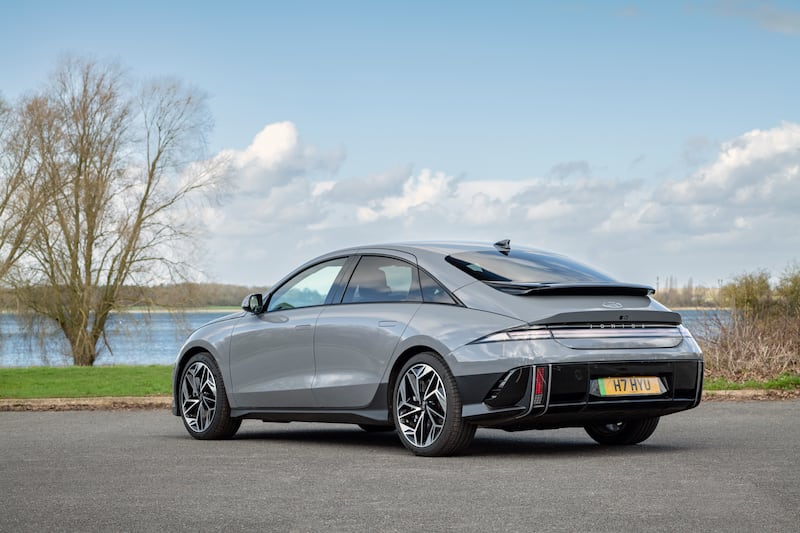
Whatever it’s called, it’s definitely unusually proportioned. The front overhang is extremely short, like a Mini, and the bonnet also looks abrupt in comparison to the rest of the car. The roof sweeps back to a distinctive tail, bedecked with two spoilers, and the overall effect is a little like a teardrop.
It certainly stands out against the bland Tesla Model 3, conventionally handsome Polestar 2 and the are-you-sure-it’s-an-EV? BMW i4, and it’s encouraging that a mainstream car-maker has the courage to design, build and sell something so singular.
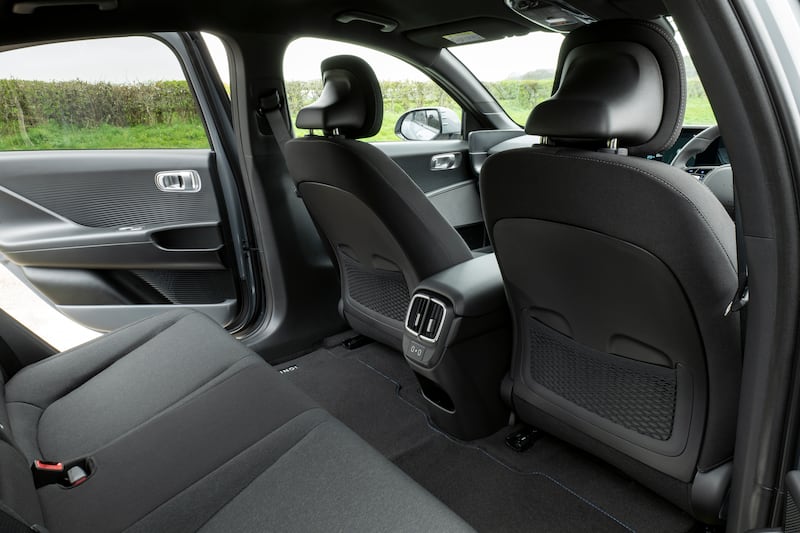
However, the Ioniq 6 is not a car that I can recommend easily. It certainly isn’t a car I would want to own, for the simple fact that I don’t fit properly. Anyone much over 6ft tall should be sure to spend time driving the car to make sure they can live with it…
The problem is that in fitting the Ioniq 6 with its sleek outfit, a number of compromises have been made. Almost all EVs carry their battery packs under the floor of the passenger compartment; because batteries are relatively bulky, occupants tend to sit higher than they would in a comparable petrol car. That isn’t an issue if the EV has a ‘normal’ roofline… but in the case of the Ioniq 6, Hyundai has deliberately pulled the roof lower. The net effect is a cabin that is short on height.
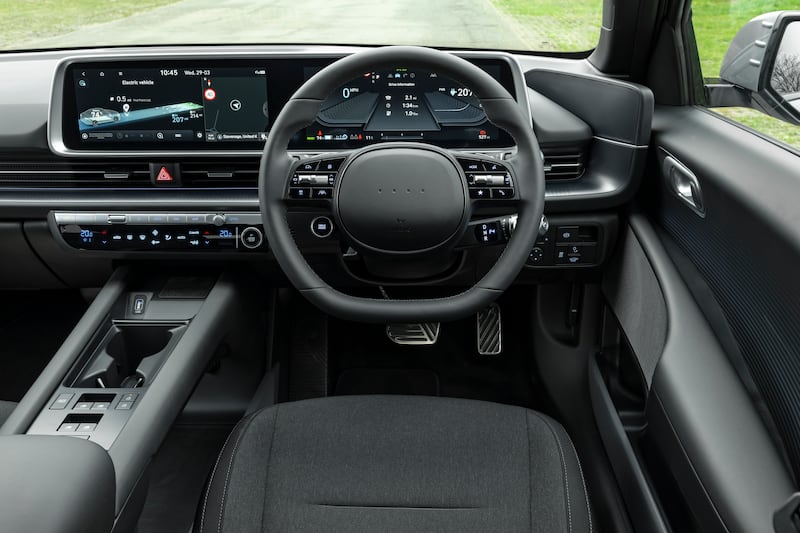
With the seat set in my preferred position, I needed to crank my neck towards the side window to stop it hitting the roof. Reclining the seat to find some extra headroom just put me further away than was comfortable from the steering wheel and the touchscreen, through which many of the car’s functions are controlled. It feels as if the seat could be mounted lower, which might make all the difference.
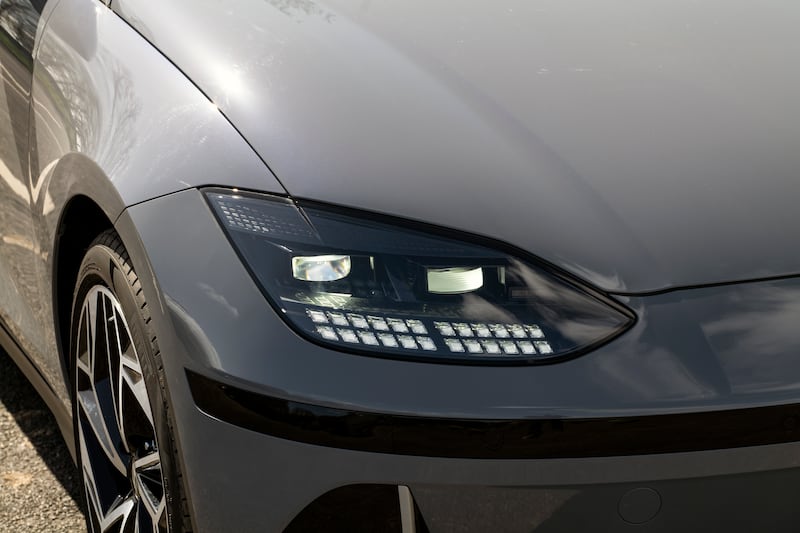
As a glance at Ioniq 6′s silhouette will tell you, the headroom is even worse in the rear.
The Ioniq 6 comes with a 77kWh battery and either rear-wheel-drive and a 225bhp motor or all-wheel-drive and a 321bhp twin-motor set-up. Range is up to 338 miles or 322 miles respectively. Prices start at £47,040 and rise to £54,040.
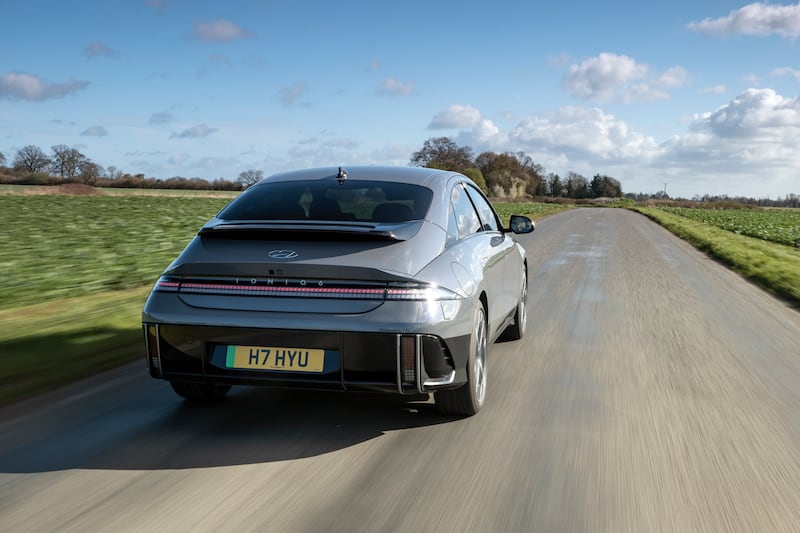
Provided you can fit and click with the styling, the Ioniq 6 is undoubtedly another EV that is worth serious consideration. However, I find it hard to be too enthusiastic about a car I can’t sit in comfortably.
